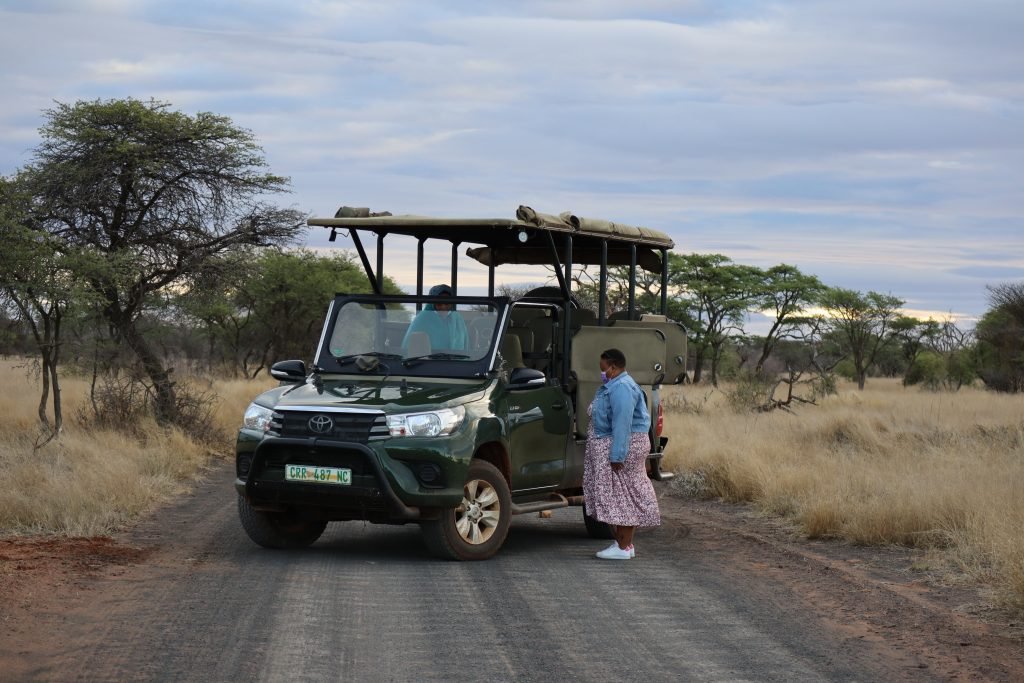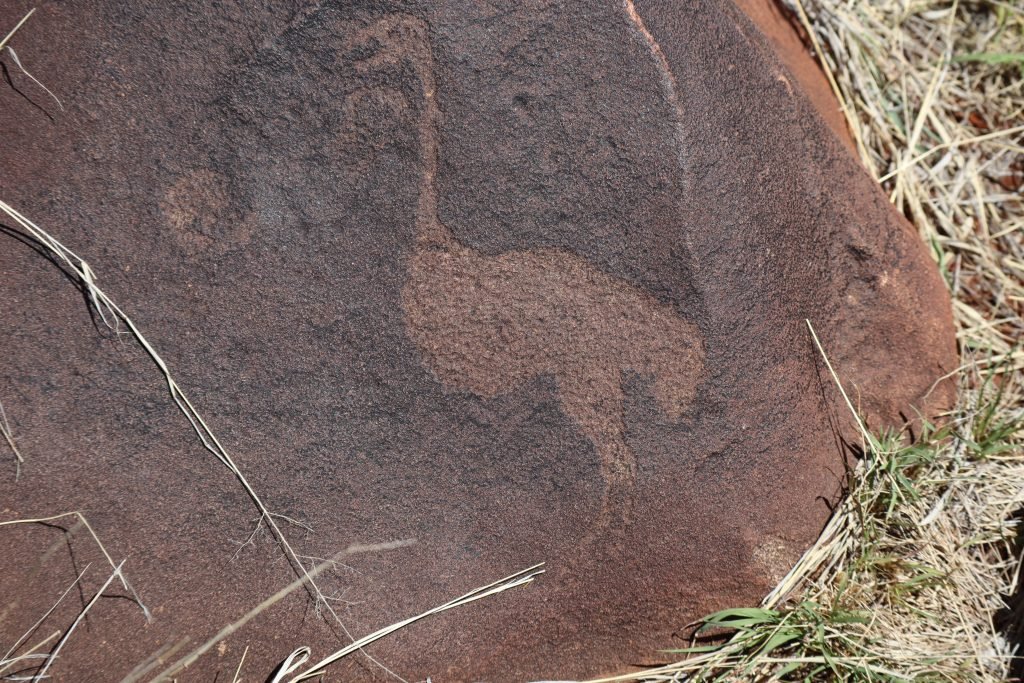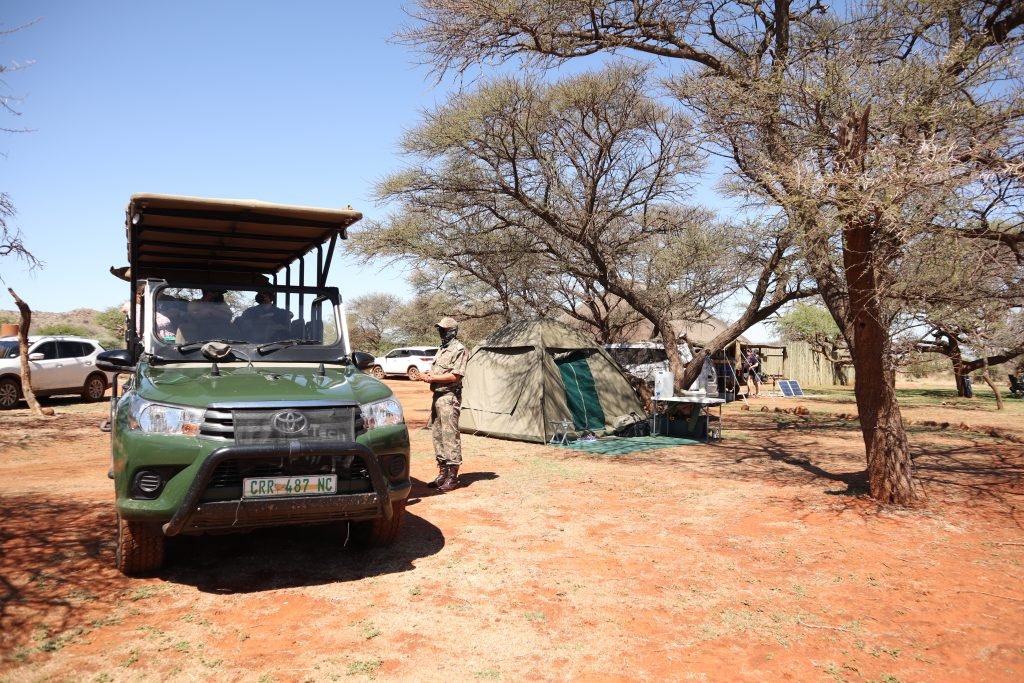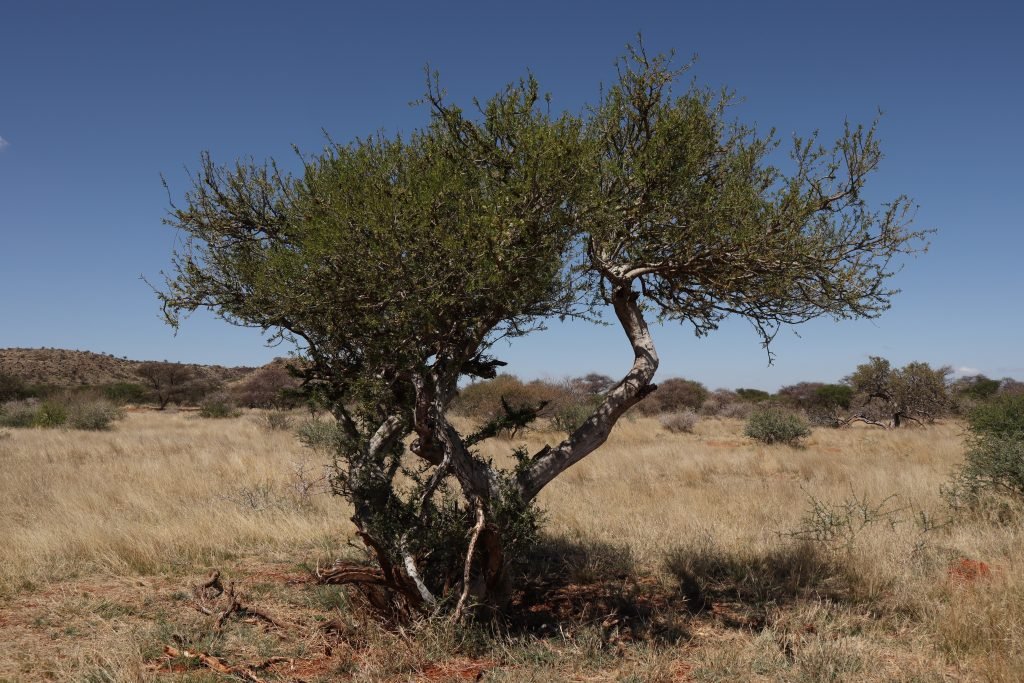Mokala National Park is situated about 70km south-southwest of Kimberley, and west of the N12 freeway to Cape Town. Nestled in the hills, Mokala’s landscape boasts a variety of hills and large open plains.
The park offers a range of different accommodation types – from luxury bungalows to camping.

One-of-a-kind camping experience
Mosu Lodge has 15 self-catering units; Lilydale Rest Camp offers 12 self-catering, units overlooking the Riet River; the Mofele Environmental Centre is more rustic and in a farm-style setting. It is ideal for big family get-togethers, weddings, school groups and reunions; Haak en Steek Camp with its rustic cottage tucked away in the bush offers unspoilt views over the nearby watering hole; the Motswedi Camping site is a one-of-a-kind camping experience in the beautiful park.

A nice stop in between
I visited the park and caught up with Tess White, hospitality services manager at the park.
“We are about two and a half hours from Bloemfontein, less than an hour from Kimberley and close to Douglas. For people driving from Cape Town to Johannesburg, this is a nice stop in between. We also have international guests on their way to Augrabies and Kgalagadi national parks who stop here as part of their journeys,” she said.
Mokala, which currently has here tree house cottages with the aim of having 10 in total, is one of the parks that invested in having upmarket camping facilities.

You must have a passion for it
Tess said when Covid-19 and the lockdown hit things were difficult.
“Because we are a national park, the animals are not going to feed themselves, the conservation stuff are essential staff, and still had to continue with what they were doing. As soon as the regulations were out, we educated our staff. We now have regular wellness training where we speak about depression, anxiety, suicide, drug and alcohol abuse – issues that previously people didn’t really speak about.”
Tess, who has been with National Parks for over 23 years, said: “You must have a passion for it. You must want to do this. I started when I was 19 at Table Mountain National Park. You must have a passion to want to help a client, to give that extra bit, to see where you can help. With the national park, you must be passionate about not only the people, but the animals as well and nature.

“We are bringing nature to people and them to come and view our nature that is going to be here for generations. We are the custodians, not just for tourism. Our work involves going out in the veld and seeing that it is pristine – as it is a holistic caring for the animals.”
This national park was established in 2006 and in 2007 it officially opened as a park.
Mokala National Park boats the slogan, where endangered species roam “because we don’t have predators here. We are here for the protection of endangered species,” said Tess.
National Parks has different tiers. It has different units and different accommodation units to suit everyone’s budget.

Tess added: “You have your luxurious units, glamping, then your normal caravanning. There is something for everybody. We also encourage day visitors. Once a year, we have National Parks Week, when we allow people to come in for free for a day. You can have a picnic, you can have a braai, and go on activities. This is how we encourage people to come to the parks.”
Kids and Parks
SanParks also has Kids and Parks, “Where we go to local communities to encourage the kids to come and experience the national parks. SanParks is for everybody. This is everybody’s heritage. This is our kids’ future. We need to preserve it so that our children can come in 100 years’ time and still see a Rhino.”
Tess added: “It’s important for us to make sure that we do not only preserve the biodiversity, but also the cultural heritage of our nation.”
Tess’s advice to young people getting into the field is: “You need to have a passion. You need to like people to do this. Learn from the bottom and work your way up. You must be adaptable and be willing to help others in the different departments. With tourism, there are so many different avenues.”
0 Comments